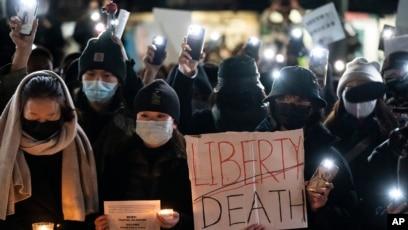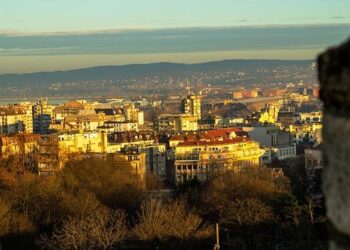Tens of thousands of protesters took to the streets across Serbia in a massive display of dissent against the government, marking one of the largest demonstrations in recent years. The protests, fueled by growing frustration over economic challenges, political corruption, and restrictions on media freedom, culminated in widespread rallies demanding significant reforms. As citizens voiced their discontent, the government faced increasing pressure to address the mounting grievances that have sparked unrest throughout the country.
Massive Anti-Government Protests Sweep Through Serbia Reflecting Deep Political Discontent
Tens of thousands of demonstrators flooded the streets of Belgrade and other major cities across Serbia, voicing their frustration with the current administration’s policies and alleged corruption. The protests, seen as the largest in years, reflect widespread dissatisfaction among citizens who demand greater transparency, accountability, and democratic reforms. Protesters carried banners denouncing economic inequality, media suppression, and the government’s perceived failure to address pressing social issues.
Organizers outlined several key grievances fueling the unrest, including:
- Lack of judicial independence, undermining the rule of law
- Economic stagnation marked by rising unemployment and inflation
- Restrictions on press freedom limiting unbiased news coverage
- Concerns over election integrity and political transparency
| City | Estimated Attendance | Key Demands |
|---|---|---|
| Belgrade | 25,000+ | Anti-corruption measures, media freedom |
| Novi Sad | 8,000+ | Judicial reform, economic opportunity |
| Nis | 5,000+ | Transparent elections, social justice |
Key Grievances Driving Demonstrators Include Corruption Economic Struggles and Media Restrictions
Protesters have taken to the streets fueled by deep frustration over widespread corruption that they claim pervades many levels of government. Accusations range from opaque public contracts to nepotistic appointments, sparking demands for increased transparency and accountability. Many demonstrators argue that systemic graft has eroded public trust and hindered Serbia’s democratic progress, calling on leaders to implement comprehensive reforms and crack down on corrupt practices.
Economic hardship remains a significant driver behind the unrest, with soaring unemployment rates and stagnant wages leaving thousands feeling marginalized. Compounding these financial strains are stringent restrictions on independent media, which protesters say contribute to a controlled narrative and limit public access to unbiased information. The following table briefly outlines the main socio-economic challenges cited by demonstrators:
| Issue | Impact |
|---|---|
| Unemployment | High rates among youth and skilled workers |
| Wage Stagnation | Minimal growth despite rising living costs |
| Media Restrictions | Limited freedom and biased coverage |
| Public Services | Underfunded and inefficient delivery |
Experts Recommend Dialogue and Institutional Reforms to Address Public Demands and Restore Stability
Leading analysts emphasize that meaningful progress in Serbia hinges on open communication between government officials and civil society representatives. They argue that only through sustained dialogue can the underlying grievances fueling the widespread demonstrations be thoroughly understood and effectively addressed. Experts urge the establishment of inclusive discussion platforms to foster transparency, rebuild trust, and ensure that citizens’ voices shape policy decisions moving forward.
In parallel, calls for comprehensive institutional reforms have grown louder, highlighting the necessity to strengthen democratic frameworks and enhance public accountability. Key recommendations include:
- Judicial independence: Safeguarding the courts from political interference
- Media freedom: Promoting unbiased and diverse outlets for information
- Electoral integrity: Ensuring free, fair, and transparent elections
- Anti-corruption measures: Implementing strict oversight to prevent misuse of power
| Reform Focus | Expected Impact |
|---|---|
| Judicial Independence | Enhanced rule of law and public confidence |
| Media Freedom | Informed and engaged citizenry |
| Electoral Integrity | Legitimate and representative governance |
| Anti-Corruption | Reduced abuse of power and transparency |
Final Thoughts
As the protests in Serbia continue to draw tens of thousands of participants, the nation’s political landscape remains tense and uncertain. Authorities have called for restraint, while demonstrators vow to sustain their pressure on the government. Observers will be closely watching how both sides navigate this critical moment in Serbia’s democratic process. Further developments are expected in the coming days as the situation unfolds.
















